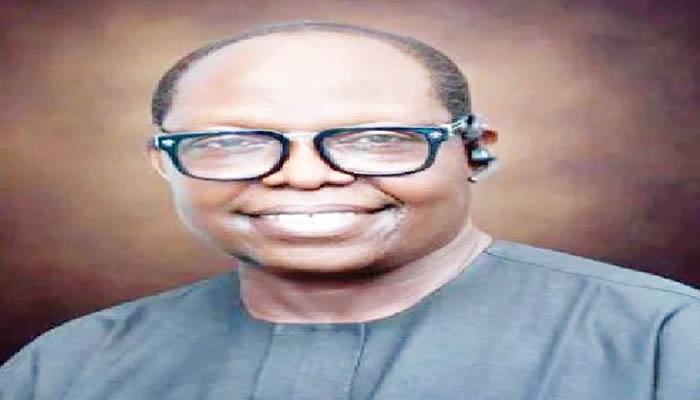Senior eye health professionals in Nigeria have issued a strong warning against the use of unverified traditional remedies like breast milk and cow urine for treating eye infections and diseases.
The ophthalmologists say these practices are not only ineffective but also dangerous, with the potential to cause serious complications, including permanent blindness.
Speaking at the 26th Annual Faculty of Ophthalmology Lecture organized by the National Postgraduate Medical College of Nigeria, leading eye care specialists decried the prevalence of harmful eye care myths driven by cultural beliefs and misinformation.
Dr. Festus Oshoba, a Chief Consultant Ophthalmologist, condemned the continued application of breast milk and cow urine to the eyes.
While breast milk is rich in nutrients for infants, he noted it is not sterile and should never be used for ocular treatment.
Cow urine poses even greater risks due to its high content of harmful bacteria.
“These unscientific practices introduce pathogens into the eye, worsening infections and delaying appropriate treatment,” Oshoba said.
He urged individuals experiencing symptoms like redness, itching, or discharge to consult qualified eye care professionals instead of resorting to home remedies.
Oshoba described such traditional beliefs as “force majeure” challenges, external, uncontrollable factors that undermine efforts to deliver universal eye care.
He warned that applying unverified substances often escalates otherwise preventable conditions into severe or irreversible vision loss.
During his lecture titled “Force Majeure, Masquerades, and the Attainment of Universal Eye Care in Nigeria,” Oshoba also discouraged the use of camphor and herbal preparations.
According to him, these are sometimes applied directly into the eyes in local communities.
He further stressed the importance of protective eyewear like sunglasses or photochromic lenses to shield eyes from the sun’s damaging rays.
Oshoba said the rays can contribute to cataract formation and other degenerative eye diseases.
Another critical point raised was the risk of physical trauma to the eyes, particularly in children.
Oshoba emphasized that even a slap can lead to internal bleeding and blindness, urging parents and guardians to avoid corporal punishment targeting the face.

Beyond emergency care, regular eye screenings were highlighted as essential for early detection of conditions such as glaucoma, cataracts, and diabetic retinopathy.
Oshoba encouraged individuals to use home calendars or vision charts to self-monitor their eyesight, noting that any sudden vision change should prompt a visit to the eye doctor.
He also addressed widespread cultural and spiritual misconceptions surrounding vision loss in Nigeria.
“Many still attribute blindness to curses or supernatural forces, when in fact it may be due to conditions like brain tumors, diabetes, or untreated glaucoma,” he said.
In the context of modern challenges, Oshoba expressed concern over digital eye strain, particularly for people spending long hours on screens.
He recommended regular eye tests and the use of corrective lenses where necessary to reduce fatigue and boost productivity.
A more structural concern, however, is the severe shortage of ophthalmologists in Nigeria.
“We have only 454 ophthalmologists for a population of over 220 million,” Oshoba revealed, calling it a significant obstacle to achieving universal eye health coverage.
Professor Charles Bekibele, an ophthalmologist from University College Hospital, Ibadan, raised alarm over the ongoing “Japa syndrome,” the mass emigration of Nigerian professionals.
He noted that young doctors are leaving the country in large numbers due to poor working conditions, low pay, and lack of opportunities.
“Five years ago, we had about 30 resident doctors training in ophthalmology.
Now, we’re down to just five,” he lamented.
According to him, Nigeria currently lacks essential tools like surgical simulators, especially for cataract procedures, the leading cause of blindness in the country.
“It’s like trying to train pilots without a flight simulator,” he said.
To address this gap, Dr. Olatunji Olowolafe, Chancellor of Ekiti State University, announced a donation of $9,800 toward the purchase of a cataract surgical simulator.
He emphasized the importance of innovation and modern training methods in retaining local talent and raising global standards.
“With simulation labs, we can equip future ophthalmologists with world-class skills and reduce medical brain drain,” Olowolafe said.
He expressed optimism that improved infrastructure could help reverse the current trend, attracting both domestic patients and international medical tourism to Nigeria.







